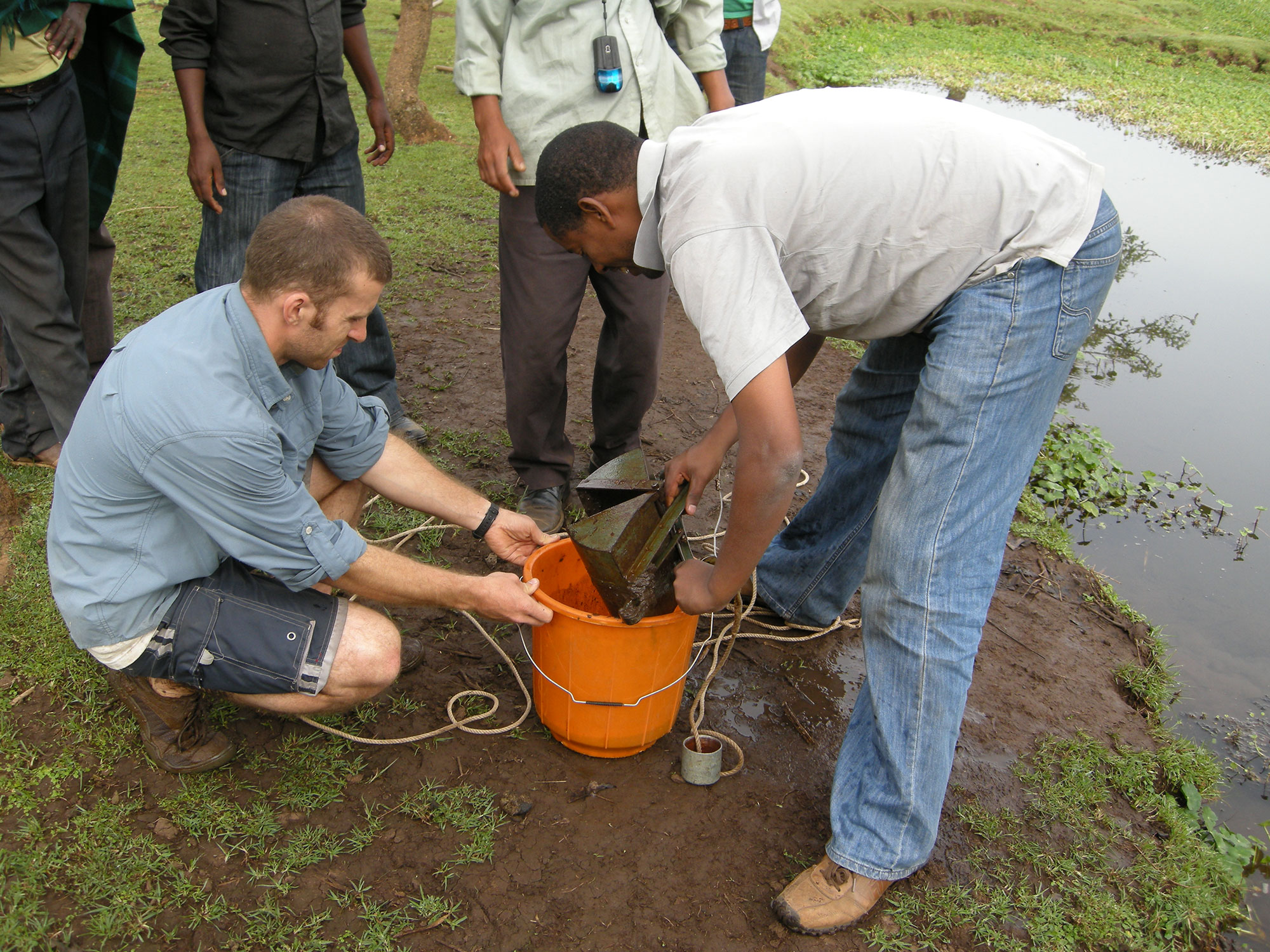The miracles of God recounted in the Scriptures usually possess both a proximal and ultimate meaning. Proximal describes things that are near, relevant to circumstances immediately in front of us. Ultimate describes things far off or the final point of a matter. When Moses threw the log into the bitter waters at Marah to make them sweet, there was a proximal impact: God’s children drank water needful for their existence on earth and Moses taught them a lesson about their bitter hearts. There was also an ultimate impact: the miracle pointed to Jesus, the Living Water who cleans us from the inside out, takes away our bitterness, and puts in us new hearts that are springs of sweet water that never go dry (Exodus 15:22-26; John 4:13-14).
In 2010 I travelled to Ethiopia to conduct an ecological survey of Lake Zengena, a beautiful crater lake in the Awi Zone of the Ethiopian Highlands. During my visit I spent some time in Bahr Dar on the shores of Lake Tana. There I met a clerk at my hotel who I will call Jared. He was an engaging young man in his early 20s and he was curious about my work. I told him I was showing the love of Jesus by using my skills as a water scientist to bring clean water to people that suffered from the effects of environmental degradation. The mention of Jesus caught his attention and he requested to meet me after he clocked out that evening. Around 9pm he came to my room and asked many direct and sincere questions about my faith in Jesus. He was Ethiopian Orthodox, a Coptic expression of Christianity, and had a poor understanding of grace – that is, the undeserved love and forgiveness of God through Jesus Christ. He felt he had to do right things to earn the love of his Father in Heaven. He had his Amharic Bible in hand and I had my English Bible and, desiring to work within the Old Testament framework that he was grounded in through his Orthodox upbringing, I led him first to Genesis 15 where “Abraham believed God and it was credited to him as righteousness.” Then I moved to Exodus 12-13 to discuss the ultimate meaning of the Passover.
I asked Jared “When Abraham believed God was it before or after the 10 Commandments were delivered?”
“Before” he answered.
“When Moses believed God would deliver His people and obeyed the directives of the Passover was it before or after the Law was given at Mt. Sinai?”
“Before” he said.
I stood in the doorway of my hotel room and said “So Moses believed God and demonstrated his faith by spreading the blood of a spotless lamb on the doorposts and lintel of his home and he and his household were rescued from death.” At this I spread my arms across the doorway. “Tell me, what shape do you get when you draw a horizontal line between the blood spots on the doorposts and a vertical line downward from the spot on the lintel?”
“A cross” he said.
“Who is the Lamb of God?!”
“Jesus!”
As Jared proclaimed the name of Jesus I saw his eyes brighten and what seemed like scales fall from them. For the first time in his life he knew the unconditional love of God and was free from the demands of the law to build up his own worthiness. Through the proximal spotless lamb of the Passover, Jared saw the ultimate Spotless Lamb of God who takes away the sin of the world (John 1:29).
My proximal duty in Ethiopia in 2010 was to bring clean water. My ultimate role was to deliver the Living Water.


Marie Chambers writes: What a wonderful account of your sharing the gospel in a way that could reach Jared. Thanks for sharing!
Thank you Marie. Someday I’ll relate some background to this event that adds even more God-Is-Awesome to the story. I met Jared in 2010 but the groundwork was being laid in 2006.